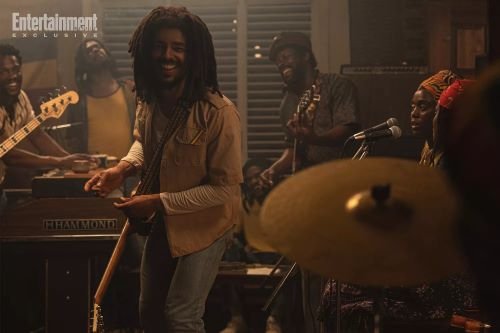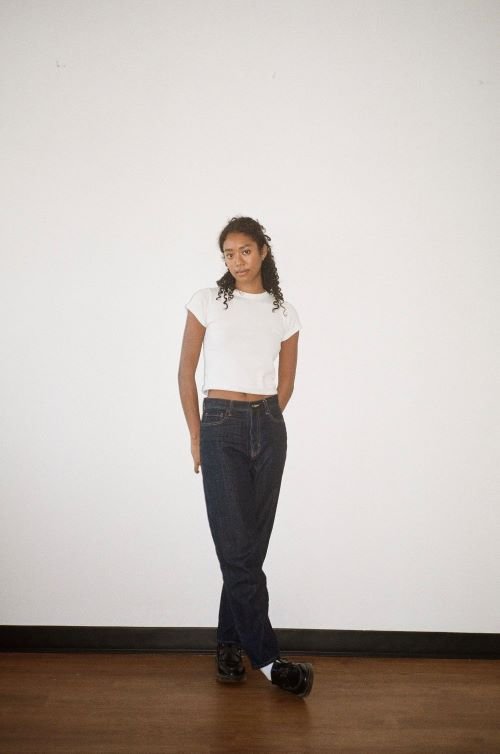FEATURE:
An Angel Among Us
IN THIS PHOTO: Kate Bush in a promotional photo for 2011’s 50 Words for Snow/PHOTO CREDIT: John Carder Bush
Kate Bush’s 50 Words for Snow Is Proof That She Is Among the Music World’s Elite
_________
I am going to be…
going back to 1978’s The Kick Inside and Lionheart soon for some anniversary features. Before I do, I am flipping right through to Kate Bush’s most recent album. There are a couple of reasons why I am coming to the album. There is a definite demand for new Kate Bush material. I am not sure whether that will happen. As Del Palmer died recently, I feel the chances of her working with another engineer are slim. It is a shock that we may never get more Kate Bush material. Nothing new from her. Even so, when she was speaking about 2011’s 50 Words for Snow, she hinted that there was more written. Even when promoting the 2016 live album of Before the Dawn (2014), that feeling that this was not the end. I am not sure whether there are songs recorded waiting to come out. We hope that 2011’s album was not the end of things! What is startling about 50 Words for Snow is that it was another bold and assured move from Kate Bush. 2005’s Aerial is quite orchestral in its feel. Sweeping and grand in places. It has its own sound and is quite sprawling too. With a lot of individual tracks across the double album, it is vastly different to 1993’s The Red Shoes. Similarly – and with 2011’s Director’s Cut coming before it -, 50 Words for Snow is entirely different. With seven tracks (the fewest ever seen on a Kate Bush album), there was mot emphasis on the texture and layers of a track. Bush and her musicians allowing the songs to unfold and move. No punchy single or shorter track that could be suitable for radio.
The opening and closing cuts invoke a chill as they dwell on the ephemeral nature of the life cycle. "Snowflake," which features the choirboy pipes of Bush's 12-year-old son Bertie, gives voice to the melting consciousness of the natural world itself; "Among Angels" reads like the sweetest kind of suicide note. In between there are imagined couplings – with a gender-bending snowman in "Misty," and with a lover found and lost through many reincarnations (and played with brio by Elton John) in "Snowed In At Wheeler Street." The bounding "Wild Man" chases a yeti.
The trip-hoppy title track casts actor Stephen Fry as a Siberian scientist building a lexicon in white. That song could be a metaphor for Bush's own creative process. In its choruses, she goads Fry on with vocals that come close to the legendary witch whoops of her youth: Come on, Joe, you have 32 to go! The listener can easily imagine Bush pushing herself in a similar way: waking up in the morning and telling herself to get on that sled and ride her theme to a new destination.
We who treasure her can rejoice that she cut a path so quickly. Along with May's reworking of older material, Director's Cut, this makes for two Bush albums in a year. The once moderately reclusive artiste may be entering a fruitful late season. Let's hope she continues on her elemental mission. One hundred words for starlight, maybe, Kate?”.
In addition to celebrating 50 Words for Snow and showing that it is among her most arresting and best albums ever, there is also that assumption (from some) that was the final album from Kate Bush. Maybe a sign that she was bringing things to a close. Maybe Del Palmer’s passing confirms that. If you listen to 50 Words for Snow and the wonder and scale of it, you get a feeling that Bush was starting this new phase. Inspired to write songs differently to how she had done in the past, the whole world would embrace another Kate Bush album. We will not know whether that will happen unless Bush says something one way or the other. I would encourage people to listen to 50 Words for Snow, as it is not like her other albums. Embracing negative space and very much letting songs go on and create this very distinct atmosphere, I get the impression Kate Bush had in mind another album or two like this. Maybe not snow-themed or with the exact same sound, one could imagine a future album that embraces fantasy and a brilliant concept. It did not feel like a final chapter. Director’s Cut cleared the way for new work. Rather than end with one more album, I guess Bush was excited to do a lot more. 2014’s Before the Dawn, like The Tour of Life in 1979, was a live event after two albums. After that, maybe more material. Bush has been in retrospective mode since 2014. Releasing studio albums and this and that. I have said how Del Palmer’s death has a profound impact on future music. Even so, listening back to 50 Words for Snow, one hears this new passion and quality that I always thought would be followed up. It still might be. We are not sure what lies ahead in terms of Kate Bush’s career. 50 Words for Snow is this hugely influential artist once more doing something incredibly innovative and fresh. Yet very much being Kate Bush. A distinct sound that showed, thirty-three years after her debut album, she was at her absolute peak. Not many artists can claim that! Listen to the album and get lost in…
THIS spellbinding and beautiful world.



































































































